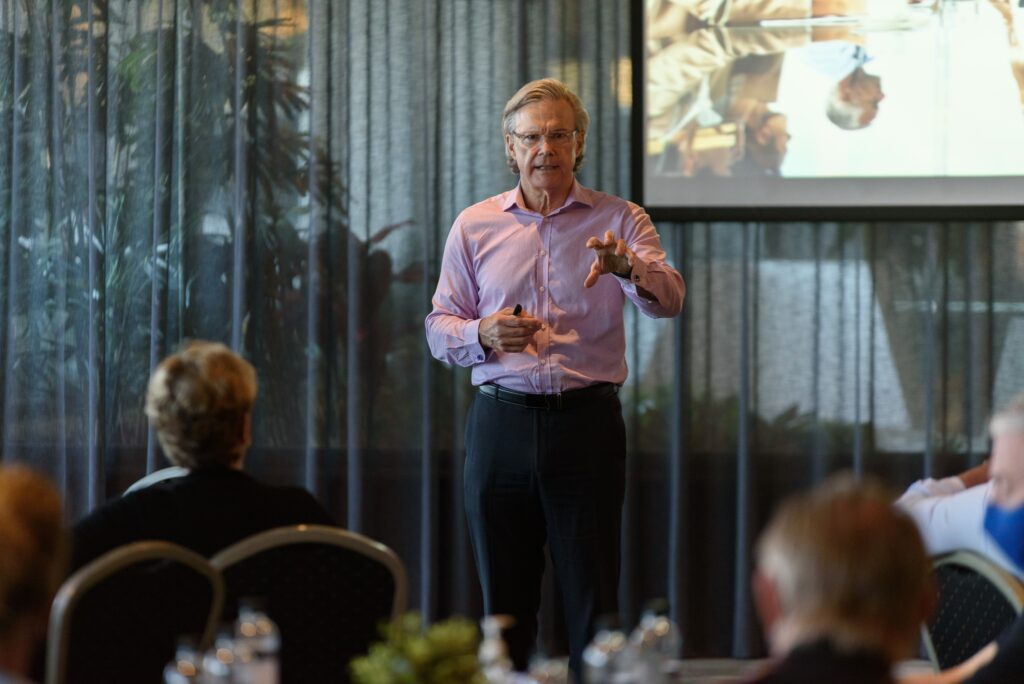What Is Group Coaching?
Group coaching can have amazing power and positive impact in changing the behaviour of leaders in the workplace. Its influence results group learning, the practical application of ideas, techniques, and tactics. Peers learn from each other under the tutorage of a skilled facilitator in sessions that last for 90 minutes. The results can be immediate and profound in most cases. Group coaching is based on a facilitator working with a small group of four to six leaders in a 90-minute session. It is not a workshop or seminar. The facilitator will use a topic such as: Dealing with difficult employees or Getting the best from the team you lead.

Collaborative Learning and Action Planning
The facilitator involves everyone in the group to share strategies and techniques they have found to be successful (or unsuccessful). Ideas are ‘tossed around and commitments made to try certain approaches. At the end of the group coaching session, the facilitator will ask each leader to commit to a certain course of action they found useful.
What Are the Key Benefits of Group Coaching?
Group coaching has gained significant popularity due to its versatility and measurable impact. It offers a powerful framework for achieving a broad range of outcomes. Below are some of the most impactful and widely valued benefits:
Coaching is great for solving complex problems because it guides and supports group members to closely clarify the problems, identify powerful strategies to solve them, and specify relevant and realistic actions to implement those strategies. Members can share support and accountabilities to take those actions.
That same support and accountabilities can be used to ensure that group members actually apply the content that they got from some form of training.
The close engagement among members and their strong focus on helping each other can quickly form a close and confidential bond in which members come to rely on each other to achieve the goal of the team.
Because members completely count on each other, they feel free to share more than business cards – they share their needs, open and honest feedback, and useful and practical resources among each other.
Coaching has been proven to be a powerful means to cultivate change in people. Organisational change, including cultural change, requires change in people as well. In some formats of group coaching, the members not only get coached, but they practice coaching. The groups can be low-cost because the members do much of the work in the groups.
We are learning that, unless a change effort has the complete buy-in, participation and commitment of employees, then the change effort is not likely to be successful. That engagement has to start with the employees being authentic – open, honest and direct about what they are experiencing. They need to feel listened to — and respected. That can occur in these groups.
Research shows increasing burnout and cynicism among employees. Burnout is not necessarily caused by a person’s workload. It can be caused by the person’s perspective on their workload. Coaching can clarify that perspective and what can be done about it.
There are many skills that group members will develop, regardless of the purpose of the group. For example, they will build skills in presenting to a group, asking for and accepting help, listening, asking good questions, action planning and learning from reflection.
Who Facilitates the Group Coaching Sessions?
Group coaching sessions are led by Dr. Tim Baker, an award-winning leadership expert and author of eight books, including The New Influencing Toolkit. Recognized globally, he has delivered over 2,400 sessions to 45,000+ participants across 11 countries and 21 industries.

What Is The Process Of Group Coaching?
Each group coaching session follows a clear structure. The facilitator introduces a leadership topic, encourages discussion among participants, and supports reflection. The session ends with each person identifying key takeaways and committing to action.

Introduction of the Topic

Participant Sharing & Discussion

